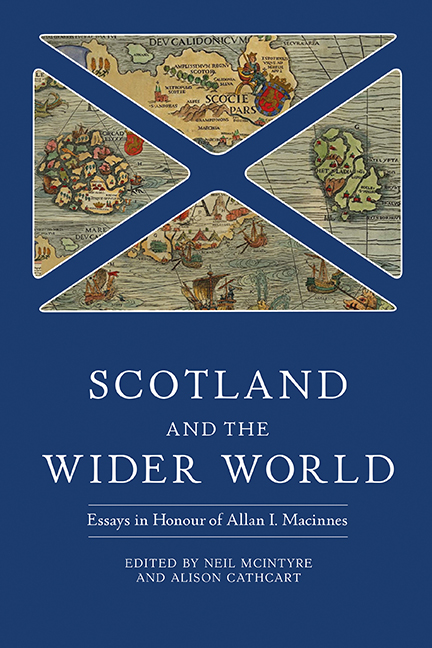Book contents
- Frontmatter
- Contents
- List of Contributors
- Preface
- List of Abbreviations
- 1 Covenants, Clans and Unions in Context: Celebrating the Scholarship of Allan I. Macinnes
- Part I Peoples and Cultures in Britain and Ireland
- Part II War, Religion and the House of Stuart
- Part III Union, Empire and Enlightenment
- List of Publications
- Index
- Tabula Gratulatoria
- Studies in Early Modern Cultural, Political and Social History
2 - The Commonwealth Refounded: the British Vision in its Edwardian Moment, 1547–50
Published online by Cambridge University Press: 26 May 2022
- Frontmatter
- Contents
- List of Contributors
- Preface
- List of Abbreviations
- 1 Covenants, Clans and Unions in Context: Celebrating the Scholarship of Allan I. Macinnes
- Part I Peoples and Cultures in Britain and Ireland
- Part II War, Religion and the House of Stuart
- Part III Union, Empire and Enlightenment
- List of Publications
- Index
- Tabula Gratulatoria
- Studies in Early Modern Cultural, Political and Social History
Summary
In the autumn of 1547, Edward Seymour, duke of Somerset and Protector of England – also governor and uncle of England's new child-king Edward VI – led English forces into Scotland. His purpose: to force the Scots to abide by the Treaties of Greenwich (1543). Through them the young Edward was betrothed to the new-born Scottish princess, Mary Stewart, and to which a small meeting of the Scottish estates had agreed – and yet from which the Scottish Parliament subsequently reneged in December 1543.
The late king Henry had himself taken action on the matter, launching invasions in 1544 and 1545. But these had been secondary operations, no more than punitive expeditions subsidiary to his main concern: chivalric glory and a replay of England's late medieval struggles in France. The events of 1547 differed in fundamental ways. For Somerset's government instead focused entirely on Anglo-Scottish union and the creation of a new British order. We enter a different world articulated in a new tone even in Somerset's opening proclamation, effectively its declaration of war. It at once stated as its purpose ‘the glorie of God, the honour and suretie of both the princess [princes] of England and Scotland and the weill and benefite of thair realmes and subjectis’. Not what one would expect from a war manifesto; and the proclamation went on to insist that their purpose would not prejudice either Scotland or England, and that the future would be determined with the advice of good men from both realms.
Crucially, the Proclamation immediately went on to enlist Scots in a great common cause: the restoration of Christianity. Thereby, ‘they sall weill find both the glorie of God and his worde advanced, the bishop of Romes usurped jurisdictioun abolischeit, the honour of baith the realms preserved and the subjectis of the same weill satisfied and contented’. A shared new era became imagined, one of equality, justice and righteousness. It can hardly surprise us that Somerset attracted a significant number of Scottish supporters.
For some time now, scholars have recognised the origins of British political vocabularies in the language growing out of what has come to be known in England as the Edwardian Moment.
- Type
- Chapter
- Information
- Scotland and the Wider WorldEssays in Honour of Allan I. Macinnes, pp. 21 - 33Publisher: Boydell & BrewerPrint publication year: 2022



